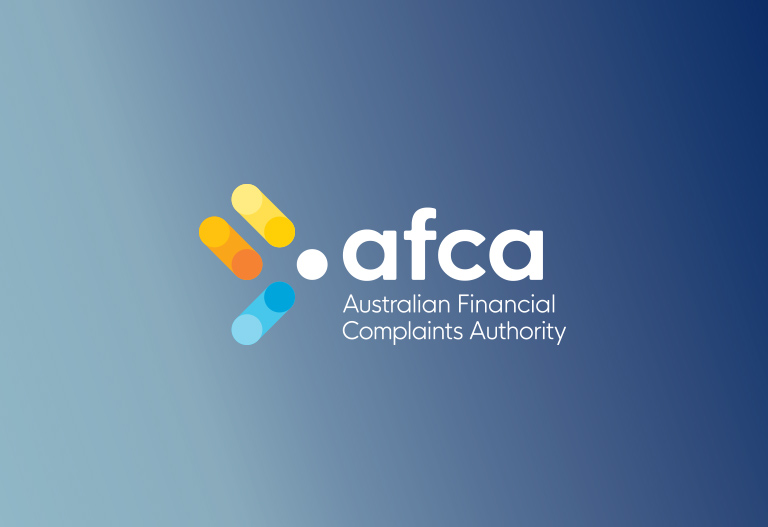Contract for Differences (CFD Trading)Everything You Need To Know
Discover the ins and outs of CFD trading in Australia, from understanding the risks involved to differentiating it from share trading. Learn about leverage, liquidity risk, and currency risk.
CFD Trading in Australia
What is a Contract for Difference (CFD)
Contracts for Difference, or CFDs, are financial derivative products that allow traders to speculate on short-term price movements. CFDs allow traders and investors an opportunity to profit from price movement without owning the underlying assets. The value of a CFD contract does not consider the asset’s underlying value, only the price change between the trade entry and exit.
What’s the Difference Between CFD Trading and Share Trading?
The main difference between trading contracts for difference and share trading is that when you trade a CFD, you are speculating on a market’s price without taking ownership of the underlying asset, whereas when you trade shares you need to take ownership of the underlying stocks.
What are Margin and Leverage in CFD Trading?
Leverage is the ability to trade without paying for the full value of your position upfront. Instead, you only need to invest a smaller amount of money – called your margin – to trade a position higher in value. The percentage amount required to trade is known as the “margin requirement”, and can be as little as 5%. While leverage can benefit your trade if it goes in your favour, it also increases your risk.
For example, if you want to trade 1,000 shares in a company that has a current share price of $2.50. You could either invest in using share dealing or you could buy 1,000 CFDs. Either way, the total size of your position would be $2,500 ($2.50 * 1,000). The company’s CFD margin requirement is 20%. So by using CFDs and not physical share dealing, you only have to deposit $500 to execute your trade, which is 20% of $2,500.
If the company does well, and you close your trade at $2.60, you’ve made a return of $100 ($2.60 – $2.50 * 1,000). This is a 20% return on the CFD but only a 4% on the investment. This is how leverage works with a profitable position – but the same applies if you close out at a loss. If the company does poorly, and you close with a loss of $100, the return on your CFD would be -20%, instead of a loss of 4%. Using leverage has magnified your losses.
Risks of Trading CFD
CFD trading carries a high level of risk to your capital compared to other kinds of investments, as prices may move rapidly against you. It’s possible to lose more than your deposit and you may be required to make further payments. CFD trading may not be appropriate for everyone, and traders should consider the following risks before trading CFDs:
Liquidity Risk
Liquidity risk is the risk you may not be able to trade out of your position for a price close to the underlying or that you may be unable to trade out of it at all.
There are several measures of liquidity for CFDs, including:
- the number of buyers and sellers
- daily volume
- spread between bid and offer prices, and
- open interest.
In the absence of other buyers and sellers, the quality of market-making in providing liquidity is critical.
Designated price makers are given incentives to provide volume and tight spreads. However, there is no guarantee that there will always be suitable quotes in the market to trade against.
Liquidity risk also arises from liquidity risk in the underlying asset, due to the pricing relationship that exists between the two instruments.
Although equity CFDs are based on highly liquid companies, if for any reason the market in the underlying stock becomes illiquid, this will have an effect on the market for that CFD.
Currency risk
Not all ASX Listed CFDs are denominated in Australian dollars. CFDs over the Dow Jones Industrial Average (DJIA) are denominated in US dollars. The CFD price is expressed in $US, and all margins and cash flows are paid in $US. Movements in the $A/$US exchange rate will affect your profits and losses in $A terms.
Costs
Depending on the positions you hold, and how long you hold them, you may incur holding costs. These holding costs are applied to your account on a daily basis if you hold positions on certain products overnight past 5 pm New York time. In certain cases, particularly if you hold positions for a long time, the sum of these holding costs may exceed the amount of any profits you’ve earned, or they could significantly increase losses.
If the position moves against you, or you allow holding costs to add up, you could lose up to the amount you have deposited and you may be required to make further payments for retail clients.
Making a Complaint about a CFD Issuer
Have you lost money trading CFDs? Have you been offered gifts by your CFD issuer? Has your CFD issuer provided someone to trade on your behalf? We’re interested in hearing about your experiences trading CFDs in Australia.
Sometimes CFD issuers want you to become a ‘wholesale client’, rather than a ‘retail client’. Such a change can have significant impacts in the event you wish to make a complaint.
If you’ve been given poor financial or investment advice and would like to discuss your experience, FDLegal is here to help. You can call us at 1300 433 533 or email us at enquiry@fdlegal.com.au
FAQs
What is CFD Trading in Australia?
A high-risk, leveraged derivative contract between a client and a CFD provider. CFDs allow you to speculate on the short-term movements in foreign exchange rates, share prices, stock market index levels, or other underlying assets.
Your gain or loss depends on the price of the underlying asset when the contract starts and ends. If the price moves in your favour, the CFD provider pays you. If the price moves against your CFD position, you pay the CFD provider.
The majority of people lose money trading CFDs.
Is CFD trading legal in Australia?
CFD trading is legal in Australia and overseen by ASIC, the Australian Securities Investment Commission. Clients are strongly recommended to check that the CFD platform they intend to trade on is regulated in Australia before depositing any funds into the account.
To check whether the platform is registered, they should have an Australian Financial Services (AFS) licence number displayed on their website. Regulated companies are also obliged to issue Aussie traders with a Product Disclosure Statement (PDS). This should list key information, including product features, fees, risks, and the complaints process.
How to File a Complaint Regarding CFD Trading?
If you’ve had a negative experience with your financial adviser, CFD broker, or a CFD trading platform, you may be able to make a complaint with AFCA. Some of the issues you can complain about include:
- Advice you were given about the product where the advice wasn’t in your best interests, or was inappropriate or insufficient.
- Charges or broker commissions that were incorrectly charged, applied, or calculated (but not if your only concern is that you believe the charges were too high).
- Information you weren’t given about the product, including fees or costs, or that was misleading or insufficient (including the risk of an investment product).
- Decisions that your financial firm has made, including decisions about the suitability of your investment, an inappropriate margin call notice, or investment liquidation.
- If you gave instructions (for example, to buy or sell stock) and they weren’t followed or there was a delay in actioning them.
- Privacy and confidentiality breaches.
- Transactions that were incorrect or unauthorised.
What Countries Have Banned CFD trading?
CFD contracts are not allowed in the U.S. or in Hong Kong.
Although Australia currently allows CFD contracts, the Australian Securities and Investment Commission (ASIC) has announced some changes in the issue and distribution of CFDs to retail clients. ASIC’s goal is to strengthen consumer protections by reducing CFD leverage available to retail clients and by targeting CFD product features and sales practices that amplify retail clients’ CFD losses. ASIC’s product intervention order took effect on March 29, 2021.
Can you Lose More than you Invest in CFD?
CFD trading carries a high level of risk to your capital compared to other kinds of investments, as prices may move rapidly against you. It’s possible to lose more than your deposit and you may be required to make further payments. Therefore, CFD trading may not be appropriate for everyone.




